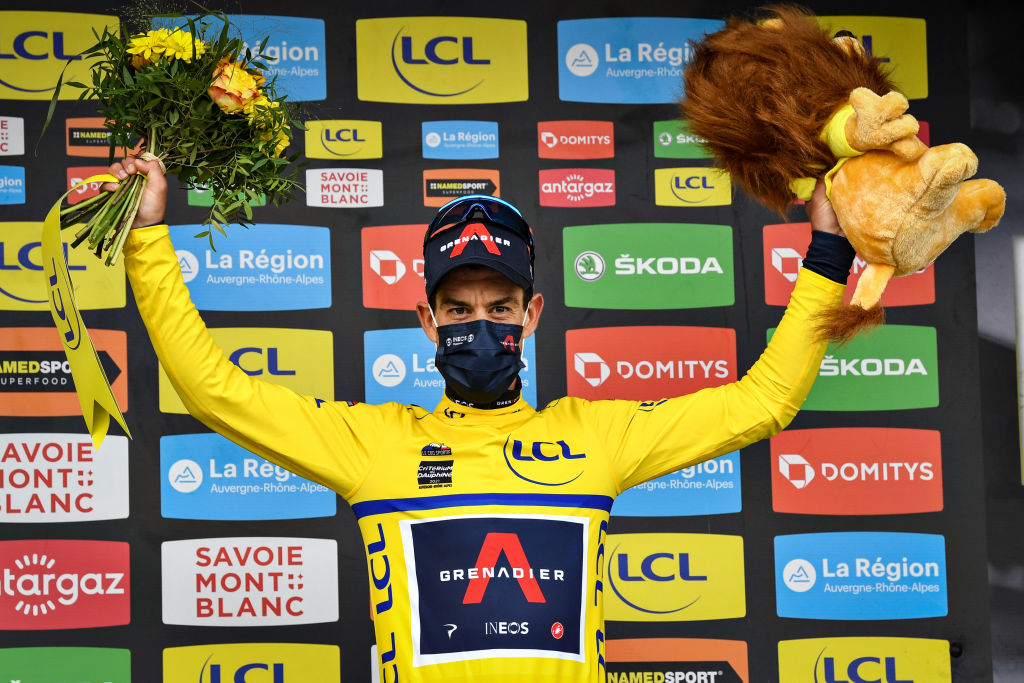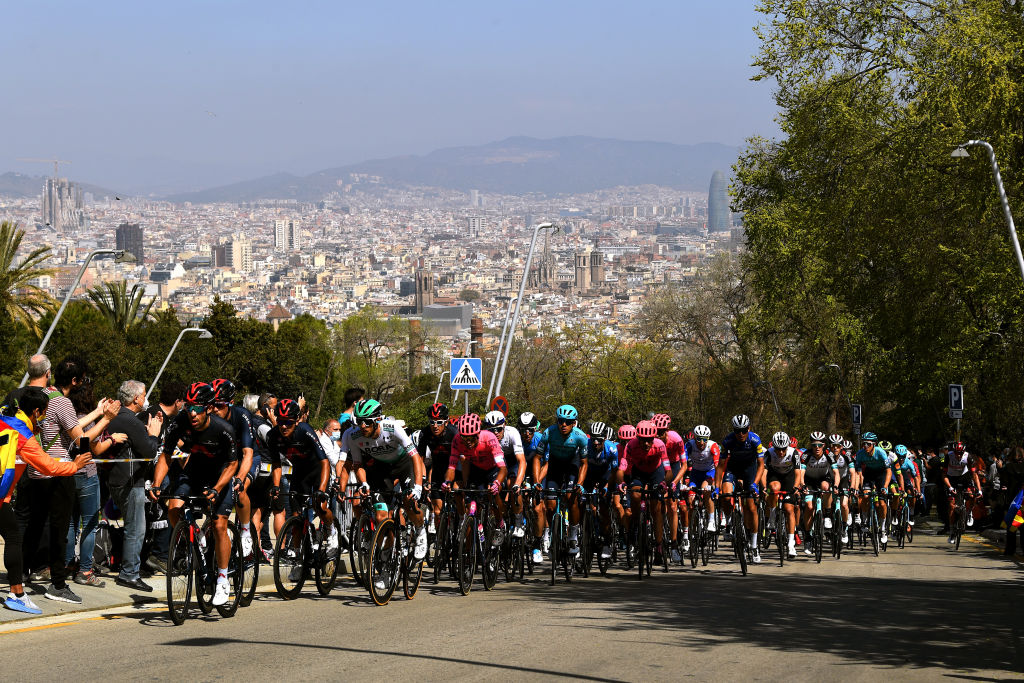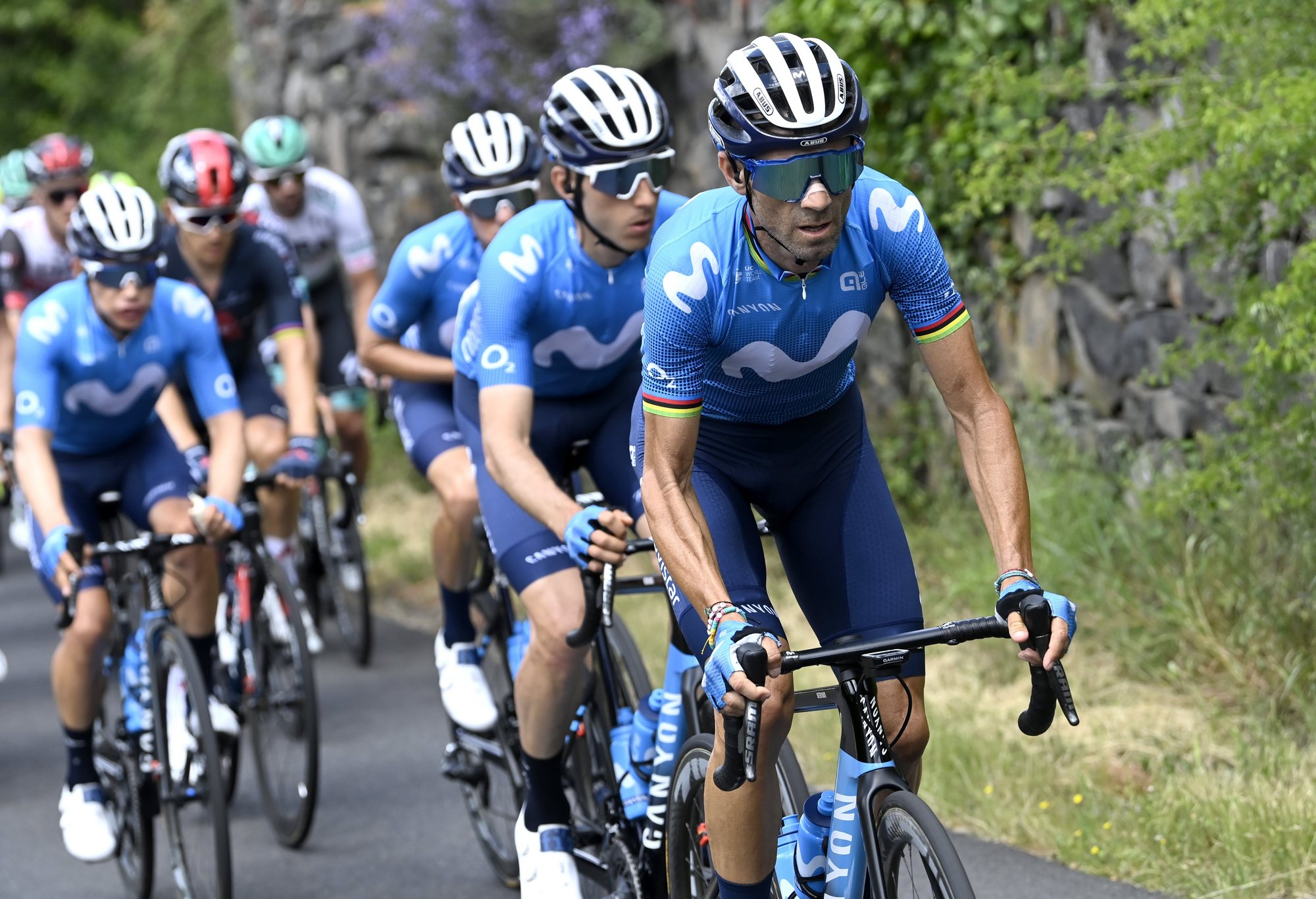One week in heaven: Procycling analyses week-long stage races
This extract from the June issue of Procycling reveals which riders are the best over seven days

The one-week stage races may not be as prestigious as the grand tours, but they are more than just training ground for bigger, longer events. Procycling magazine analyses the results of top week-long races of the year, to find out who excels at them.
This article was taken from Procycling magazine issue 282, June 2021.
Subscribe to Procycling magazine here.
There was a vociferous online movement around the time of Strade Bianche this year which promoted the idea that the Italian classic should be designated a monument. Various pros and cons were put forward. The ayes felt that the evidence of the race itself, which is epic, unpredictable and throws up an exciting battle between different kinds of riders, was enough to justify its promotion. The noes pointed out that one of the defining features of a monument is its history. (Some reasonable heads said that it didn’t matter either way, and we should just enjoy the racing, which is a good attitude to take with many of cycling’s ongoing debates.)
Procycling ran a feature last year about cycling’s ‘big nine’ - the biggest and most prestigious events in the sport, which are the three Grand Tours, the five monuments and the World Championships. Whenever anybody suggests that 10 would be a nice round number, Strade Bianche is often posited as the ‘sixth monument’. Cases are also made for Amstel Gold Race, not least by former winner Philippe Gilbert, who felt that the history and distance of the Dutch classic put it above Strade Bianche. If history and distance are a factor then Paris-Tours, recently fallen on harder times but with a long and prestigious winners’ list, could also be a candidate.
But whether Strade Bianche, Amstel Gold or Paris-Tours should join the nine other races at cycling’s top table or not, what’s clear, and a little weird, is that hardly anybody suggests that a stage race should sit in that final slot.
While the Grand Tours hog the limelight, the week-long stages of cycling give the season its backbone. The Tour Down Under is now considered by all to be the true start of the cycling season. The UAE Tour in February is the first real run-out for the Grand Tour contenders. March is when things really get going, with Paris-Nice, Tirreno-Adriatico and the Volta Catalunya. And so on, through Itzulia Basque Country in April, the Tour de Romandie in May and the pre-Tour de France Critérium du Dauphiné and Tour de Suisse in June. These are the biggest one-week stage races, but even between these events, there is an almost constant succession of smaller races, over five days, four or even fewer.
Get The Leadout Newsletter
The latest race content, interviews, features, reviews and expert buying guides, direct to your inbox!
Few riders make a career out of one-week stage races. Stage racers are measured by the Grand Tours and nothing else. The one-week stage races are often measured themselves by how effective they are at preparing riders for bigger targets. Is Paris-Nice or Tirreno-Adriatico better preparation for Milan-San Remo? The Tour de Romandie used to be the traditional Giro d’Italia warm-up; now it’s a race for Tour contenders to give them an indication of how things are before they head off to altitude. The Dauphiné has turned into the most obvious Tour tune-up, even if Egan Bernal bucked that trend by winning the yellow jersey after winning the Tour de Suisse in 2019.
But these races are also some of cycling’s oldest events - the Volta a Catalunya dates back to 1911, Paris-Nice to 1933. That makes Paris-Nice older than the Vuelta and Catalunya older than the Tour of Flanders, though there have been fewer editions in the latter case. Winning a week-long stage race takes the same combination of strength, tactics and consistency as any other event and each has their own unique characteristics, battlegrounds and set pieces.

Despite organisers ASO pushing up into the higher mountains in recent years and turning it into a race which favours the more traditional Grand Tour racer, Paris-Nice has always been renowned for its traps - the crosswinds of the early flat stages and the punchy middle-mountain climbs of the Massif Central and Riviera. Tirreno-Adriatico spent a few years as a flattish test specifically designed to favour riders like Giuseppe Saronni and Francesco Moser in the 1980s, and the home sprinters through the 1990s and 2000s, but has now evolved into a mountainous stage race with a time trial - a week-long Grand Tour. As the season progresses, the races get even more mountainous, with Romandie, the Dauphiné and Suisse edging into the high mountains of the Grand Tours.
This means that in general the same riders who have thrived in the Grand Tours tend to also do well in the week-long stage races. Even the smaller events, like the Volta ao Algarve, Valenciana and Vuelta a Burgos, follow the same model. The only exceptions are events like the Four Days of Dunkirk and Eneco Tour, rare stage races which take part in much flatter regions and favour classics specialists.
We’ve always known who the best Grand Tour riders are. With only three races per year, it’s obvious - at the moment, it’s Tadej Pogačar, Primož Roglič and Bernal. Five years ago, Chris Froome, Vincenzo Nibali, Nairo Quintana and Alberto Contador dominated the Grand Tours, with Froome above the others for his Tour wins, but all four head and shoulders above the others.
We also know who the best classics riders are. Right now, they are Wout van Aert, Mathieu van der Poel and Julian Alaphilippe, with a surprise guest appearance in Liège-Bastogne-Liège this year by Pogačar. Five-plus years ago, Alejandro Valverde was the best in the hilly classics and Tom Boonen and Fabian Cancellara dominated the cobbled races. On the women’s side, Vos, Van der Breggen and Van Vleuten rule the roost.
However, no big deal is ever really made about who the best short stage racer in the world is, perhaps because they are seen as a means to an end - training for bigger races. So we’ve decided to redress that imbalance a little by taking a dive into the one-week stage races. We’ve ignored the Grand Tours and measured the best riders in the world by their results in shorter stage races. And who is the best? In the best tradition of cycling, it’s inconclusive.

Valverde has won more of these events than any other rider in the peloton, and by quite some distance. Of course, he has been a pro since 2002, so he’s had a lot more time to gather wins than anybody else, and even though his last GC win was in the 2019 Route d’Occitanie, he’s accumulated 23 wins in stage races shorter than three weeks. It’s fitting that Valverde, who has won several classics and a Grand Tour (and 19 more top-10 finishes over three weeks) should find his niche in between the two extremes.
Quintana is in second place, with 16 GC wins in shorter stage races. He turned pro 10 years after Valverde, so his hit rate is more impressive, yet with Quintana as well, there is the impression that he is not the force he once was, despite an impressive purple patch in early 2020 and a win at Vuelta Asturias this May. The only three other riders to have won 10 or more shorter stage races are Roglič, which is not surprising, Jakob Fuglsang, which is, and Froome.
Roglič has been professional for a far shorter period than any of these riders, so it’s unfair to compare him against Valverde. He’s like a football team with several games in hand. So we’ve had a look at the results since the beginning of 2018, and here Roglič is way ahead of anybody else, with eight one-week stage race GC wins, three more than anybody else.
One short stage race is not the same as another, however, and it’s also instructive to look at which riders have done well in a spread of events. Of the biggest, most prestigious and most well-established races - Paris-Nice, Tirreno, Catalunya, Itzulia, Romandie, the Dauphiné and Tour de Suisse, Richie Porte has won five - his recent win at Romandie taking him one race ahead of Quintana, who has won four. Before his third place in the Tour last year, Porte was always perceived as the closest the peloton had to a specialist in these races.
Porte is one of five Ineos Grenadiers in the top 15 riders by results in the shorter stage races. He’s won 10, Geraint Thomas has won 9, while Michał Kwiatkowski, Rohan Dennis and Adam Yates have all won four. This strength in depth was reflected in the team’s performance in the recent Volta a Catalunya where they filled all three places on the final podium, the first team to do so in a WorldTour-level stage race since the 1991 Paris-Nice.
The Giro is finished and the Tour looming on the horizon, so it’s likely the results of the shorter stage races will be forgotten as the Grand Tours unfold. But they’ll still be an important part of the season, keenly contested and always with a worthy winner.
Edward Pickering is Procycling magazine's editor.
Procycling magazine: the best writing and photography from inside the world's toughest sport. Pick up your copy now in all good newsagents and supermarkets, or get a Procycling subscription.
Edward Pickering is Procycling magazine's editor. He graduated in French and Art History from Leeds University and spent three years teaching English in Japan before returning to do a postgraduate diploma in magazine journalism at Harlow College, Essex. He did a two-week internship at Cycling Weekly in late 2001 and didn't leave until 11 years later, by which time he was Cycle Sport magazine's deputy editor. After two years as a freelance writer, he joined Procycling as editor in 2015. He is the author of The Race Against Time, The Yellow Jersey Club and Ronde, and he spends his spare time running, playing the piano and playing taiko drums.